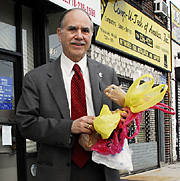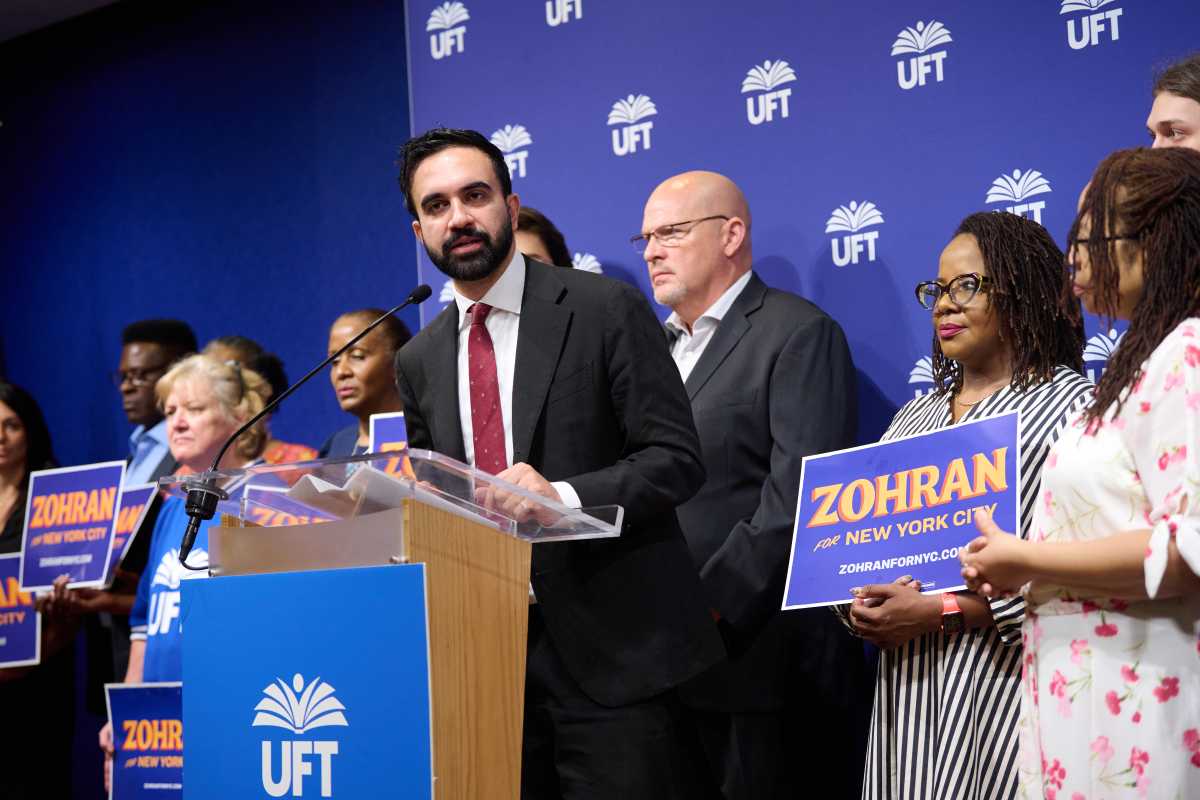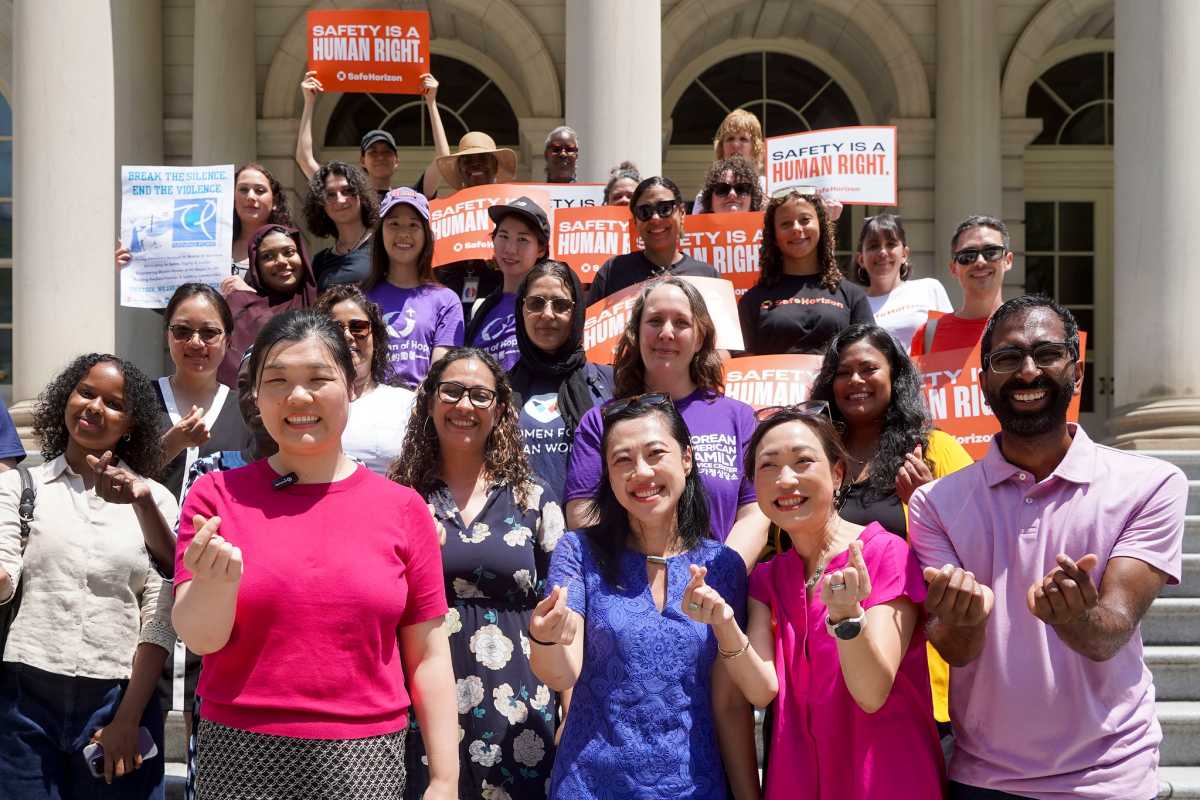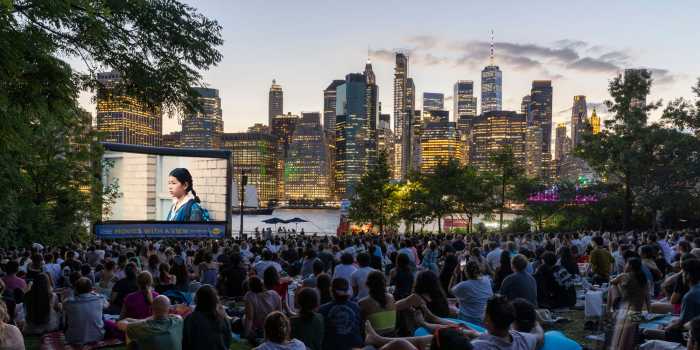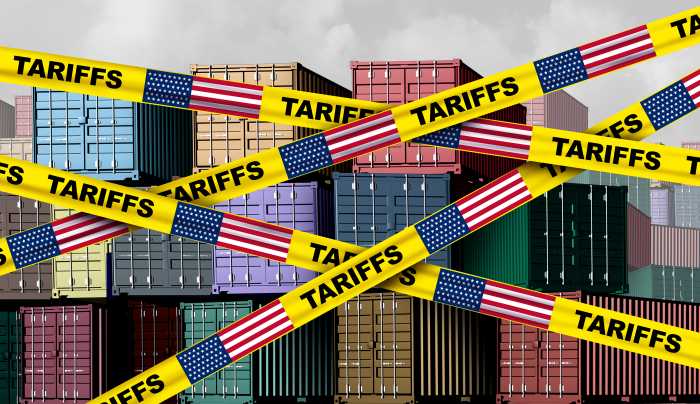A local lawmaker wants to forever change your grocery store experience by banning the plastic bags that have become a ubiquitous part of every shopping trip.
A bill put forward by Assemblyman William Colton (D-Bensonhurst) would ban large grocery stores from asking the familiar check-out question, paper or plastic?
“These plastic bags are absolutely a grave threat to the community,” said Colton. “It makes no sense to use plastic bags when we have the capability to do better for our environment.”
Colton’s bill comes on the heels of a San Francisco vote last month that banned the clingy bags from supermarkets.
Colton’s main gripe with plastic bags is that when they hit landfills they decompose back into their petroleum base, and then pollute the water supply. He is hoping his legislation will give big grocers the incentive to kick-start environmentally friendly alternatives into the main stream shopping cart.
“The technology is already here to get this job done,” he said. “All we need now is the will. San Francisco has already cleared the path for us.”
Colton admitted that banning plastic bags could temporarily raise prices, but said that the initial costs would eventually result in lower prices.
“This crisis is costing the government a lot of money and in the long run we will all save at the register,” said Colton. “But let’s face it, some people will always be reluctant to change.”
If Colton’s legislation becomes law, consumers would have to use the brown paper bag until an alternative is readily available.
The legislation has at least one fan at the Park Slope Food Co-op, where the plastic bag has been a popular and sometimes contentious subject of numerous committee debates.
“A majority of our members are against plastic,” said Co-op General Manager Joseph Holtz. “But we do have a vocal minority who use it.”
The Co-op settled on a system where plastic is available, but at a price.
“If you are going to use plastic here, you are going to have to pay,” said Holtz. “The prices for plastic bags start at a nickel and go up in price for sturdier bags.”
Colton said he based his legislation on a poll that indicated that 72 percent of the public wants to get rid of plastic bags. But shoppers outside of Associated Market on Third Avenue near 79th Street told a different story.
“I am all for making things earth-friendly,” said resident Migdalia Vientos. “But how am I supposed to carry all of those paper bags?”
Other shoppers voiced their concern that their groceries would get damaged from carrying the brown paper bags the distance to their homes.
“What a crazy idea,” one said. “I use the handles of the bag for my stroller, I don’t know what I would do if I had to use paper.”
Nine out of the 10 shoppers chose plastic when asked by The Brooklyn Paper.
“We don’t live in the suburbs, and my customers aren’t parking their station wagons out back in the parking lot,” said Associated Manager Tony Zahrieh. “Politicians don’t understand that real people have to walk.”
One businessman took it a step further, arguing that the proposed legislation would hurt the poor, and even the environment.
“Politicians don’t understand that every time they pass one of these incoherent measures it is the poor people who get hurt,” said Paul Berger, a vice president at Food City, which has three supermarkets in New York City and is a member of the Food Industry Alliance. Berger argued that the grocery store business has a very low profit margin and that any extra cost always falls to the consumer.
“For a sturdy brown bag, it will cost 7.5 cents, where a plastic bag costs under a penny,” Berger said. “But [politicians] jump on a soap box and do what they can to get press. Meanwhile, the cost of living goes up again for all New Yorkers.”
Colton disagreed.
“Costco doesn’t use plastic bags, and last time I checked they are doing pretty well,” said Colton. “I want to make clear that I am looking for friendly co-operation, not confrontation, with the industry.”
Berger still wasn’t buying it.
“What are they going to ask for next?” he asked. “That we force our customers to share bags made out of hemp?”


